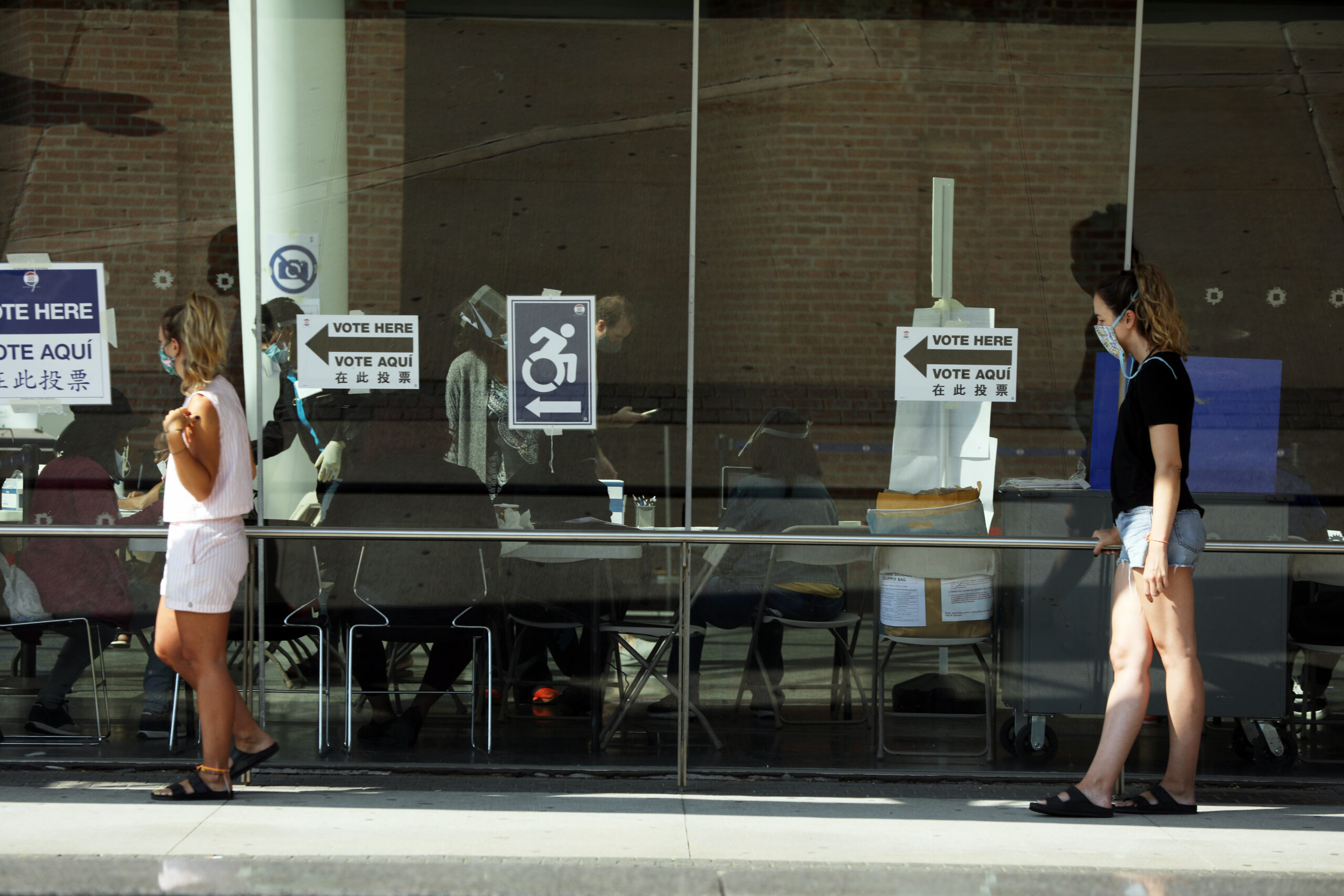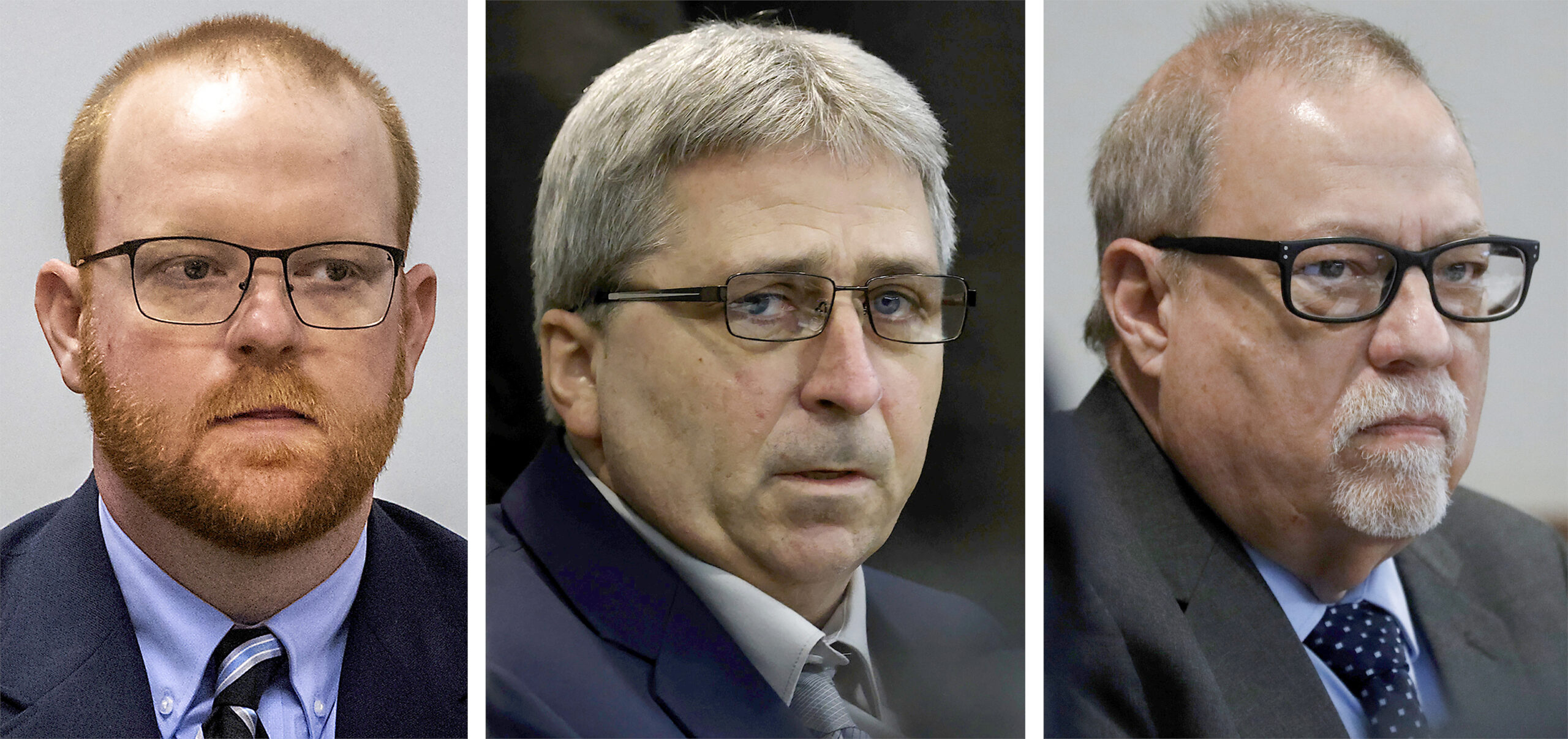With November Approaching, Election Officials Still Face Safety, Security Questions

NEW YORK, NEW YORK – JUNE 23: People vote in a primary election for city, state and federal offices at the Brooklyn Museum on June 23, 2020 in New York City. The most watched race of the day is between New York City educator and progressive Jamaal Bowman who is running against House Foreign Affairs … Continued
Spencer Platt / Getty Images
With about 100 days left before the general election, officials are simultaneously trying to prepare for two very different types of voting, while facing two unprecedented threats to safety and security. It’s a juggling act that has voters, political parties and officials anxious about how smoothly November’s voting will go.
“Doubt is our enemy,” U.S. Sen. Angus King, an independent from Maine, said at a Senate hearing Wednesday on what Congress can do to ensure public confidence in this year’s election results.
The pandemic has already caused massive disruptions. Most states greatly expanded mail-in voting in the primaries to address voters’ health concerns. Those changes are expected — for the most part — to continue this fall. But many states also want to make in-person voting widely available to avoid overloading the mail-in system in what’s expected to be a high-turnout election.
Maryland is a case in point. The state sent mail-in ballots to every registered voter for its June primary and drastically cut the number of in-person polling sites. But that resulted in long lines at the few sites that were open. At the same time, there were delays and mix-ups with mail-in ballots. Gov. Larry Hogan now wants all polling sites open in November while still encouraging Marylanders to vote early or by mail if they can.
He said this “will maximize participation in the November election by offering voters more options while minimizing confusion and risk during the COVID-19 pandemic.” But local and state election officials are not on board, saying they don’t have enough resources for this dual approach.
At the same time, the threat of foreign interference in the elections remains a concern, as it has been since the 2016 election. Intelligence officials continue to warn that foreign actors — especially Russia — are trying to disrupt this year’s voting with disinformation and attempted cyberattacks.
“There are two crises facing our elections right now,” Colorado Secretary of State Jena Griswold told NPR. She said that all the attention being paid to COVID-19 means that foreign efforts to undermine U.S. democracy are “not front of mind for a lot of states anymore, and that is troubling.”
Still, the threat of foreign interference was a major topic at an online meeting this week of the National Association of Secretaries of State. Matt Masterson, an adviser with the U.S. Department of Homeland Security’s Cybersecurity and Infrastructure Security Agency, told state officials that despite widespread efforts over the past four years to shore up the nation’s election infrastructure, serious security gaps remain.
Masterson reported that DHS testing of state and local election systems found a number of “concerning” vulnerabilities. He said that testers were “able to gain access to some election data and either modify it or download it,” especially at the local level.
Some government workers, Masterson noted, still share computer passwords and other credentials, and even use default passwords commonly known to outsiders. Masterson also warned that election workers continue to fall for phishing attacks that allow hackers to install malware, including ransomware that could paralyze Election Day operations.
Security officials have long warned that foreign actors could disrupt the election, not by changing votes, but by manipulating voter registration rolls or interrupting services in a way that causes confusion and chaos.
Masterson said the good news is that most of the problems can be easily fixed by Election Day. But he noted that many local election offices are unable to do so quickly, “not because they don’t want to fix the problems … but in most cases, they lack either the resources or the IT support necessary.”
This lack of resources was discussed at the Senate hearing, held by the Rules Committee. Congressional Democrats want $3.6 billion to be included in the latest coronavirus relief package to help state and local election offices. Republicans have resisted, but the committee’s chair, Sen. Roy Blunt. R-Mo., acknowledged the need for some additional funding so states can meet this year’s challenges.
“That’s something that everyone here can agree on: Voters in this country must be able to cast a ballot safely and securely and without putting their health at risk,” he said.
Witnesses warned that election offices could be overwhelmed if they don’t get more aid.
“This November we’re likely to see historic levels of turnout and participation,” said Kristen Clarke of the Lawyers’ Committee for Civil Rights Under Law, a voter advocacy group. “If we don’t provide the $3.6 billion that states need to institute proper reforms, I fear that we’re bracing for a disaster.”
Clarke said election offices need money to print mail-in ballots, to buy cleaning products and protective equipment for polling sites, to hire more poll workers and to educate the public about all the voting changes they’re likely to encounter this year. Some Democrats want Congress also to require states to provide at least two weeks of early voting, pay postage for mail-in ballots and allow anyone to vote absentee without providing an excuse.
Republicans oppose having any strings attached to the aid. Tennessee Secretary of State Tre Hargett told the committee that states could use more funds, but without federal mandates.
“I hope you’ll continue to respect each state’s authority to conduct elections in a manner that has or will work in their respective states,” Hargett said. “It would not be appropriate, nor do we need, to federalize the administration of our elections.”
Tennessee and a number of other states have been sued by Democrats and voting rights groups to eliminate restrictions on mail-in and absentee voting, such as witness requirements and the need for voters to provide an excuse.
Clarke said those restrictions disproportionately affect minority voters — who are also disproportionately affected by COVID-19. But Hargett said the rules are needed to limit opportunities for fraud and the coercion of absentee voters to vote a certain way.
9(MDAxODM0MDY4MDEyMTY4NDA3MzI3YjkzMw004))








